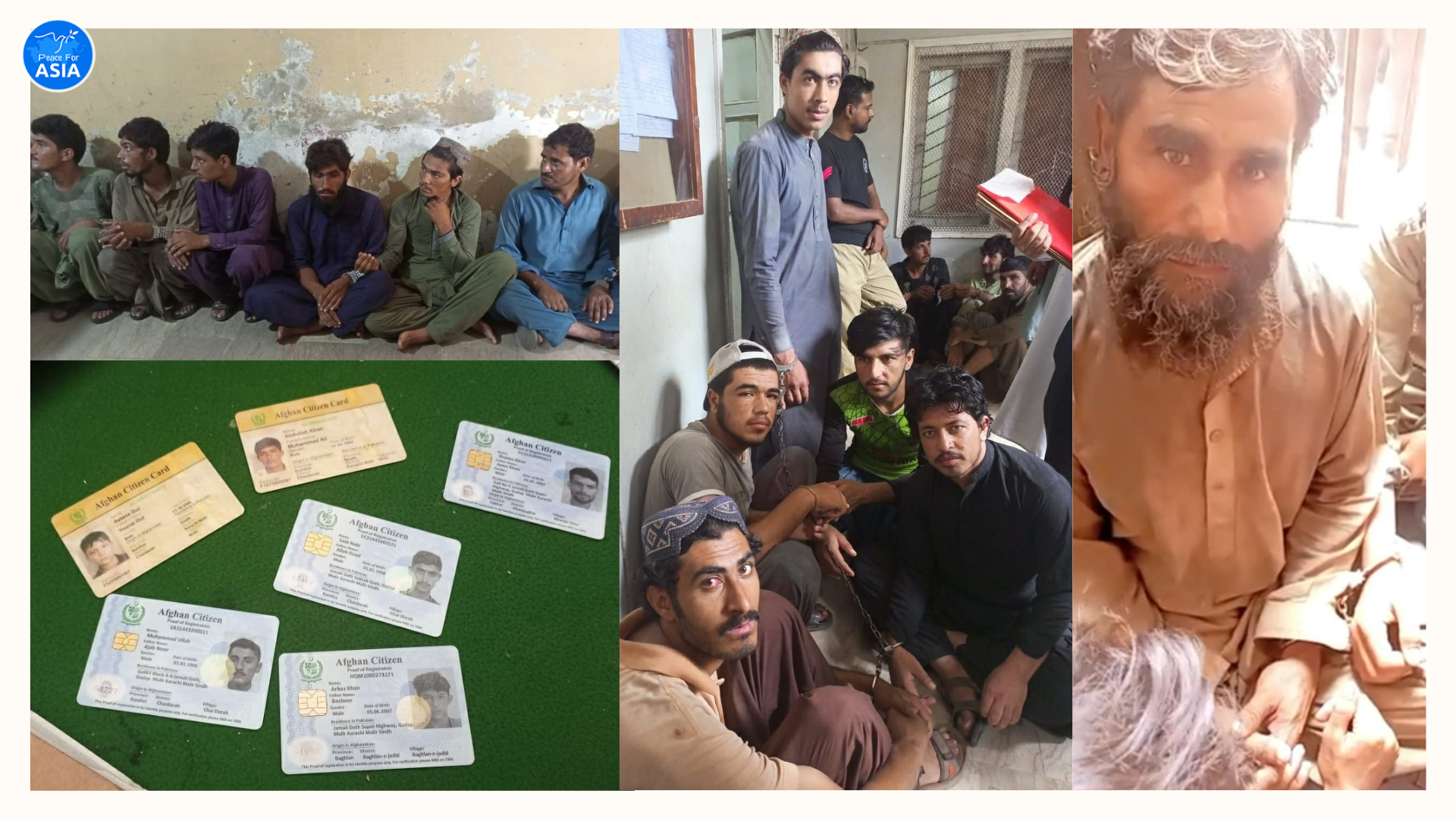A large number of Afghan refugees reside in precarious conditions in different parts of the world. Similarly, Pakistan, sharing a 1600-mile-long border with Afghanistan, has many Afghan refugees under the UN auspices. With the arrival of the new caretaker government in Pakistan, these refugees face an uncertain future. Thousands of Afghan refugees have been arrested in different cities of Pakistan. In Islamabad, people were asked to vacate their accommodations in case they were found providing housing or employment to Afghan refugees. Even businessmen risk detention and closure of their plazas. We found that the police confiscate UN cards from Afghan refugees and arrest them despite having refugee status under UNHCR. The police in Pakistan’s Sindh province and especially in Karachi have been found engaging in such actions. They arrested refugees from the Afghan refugee camp and took them to the police station. Some refugees reported that they were extorted for thousands of rupees. On average, an Afghan migrant gets arrested three to four times. Whatever little savings the Afghans have, that too is being taken away. Migrant cards and documents are confiscated, and at times destroyed to finish evidence, many refugees reported. Often young Afghan women and children are confined to their homes, at risk of being robbed outside as hyperinflation and unemployment is pushing many people to the margins. In Islamabad, the capital of Pakistan, the settlement of Afghan refugees has been declared illegal and demolished.
In Karachi, the police arrested Pashtun residents of Chaman, Qila Abdullah and Quetta, working as chefs and staff in hotels. Pakistani identity cards of Pashtuns were confiscated by the police and they were presented in courts as Afghan refugees.
The PTM held several protest demonstrations in cities including Quetta, and Kuchlak Chaman with the hope of sensitizing the authorities to treat refugees humanely. Thousands of people participated in the protests. A protest demonstration against the harassment faced by Afghan refugees was announced in Karachi. But in the night, the authorities arrested PTM friends in Karachi, and the houses of PTM associates were besieged. Thousands of police and rangers were deployed to prevent PTM from protesting in support of Afghan refugees. Troops were brought to Karachi city. PTM Sindh co-ordinator Noorullah Tareen was abducted from his residence in Karachi and remained missing for three days in return for defending the Afghan refugees. Three days later the arrest of Noorullah Tareen under Maintenance of Public Order was revealed by the government and the government clearly stated in its letter that PTM and Noorullah Tareen were creating problems for the government in the ongoing operation against Afghan refugees. PTM leader Manzoor Pashteen highlighted the oppression and brutality against Afghan refugees stating that “Continuous harassment, arrest and torture of Afghans in Pakistan is condemnable” and that poor Afghans were stripped of their right to rule Kabul.
It is not the Afghans who face unrest but even those who cheered the ouster of the democratically elected regime after the fall of Kabul in 2021. Former MNA and PTM central leader Ali Wazir termed the ongoing operation against Afghan refugees as an act of terrorism. His tweet reminded us of the post 9/11 state policies that, “We (Pakistan) want Osama in Kakul, Mullah Omar in Karachi and Akhtar Mansoor in Quetta, but we don’t want innocent, working and asylum-seeking Afghans.”
Former senator, intellectual and prominent politician Afrasiab Khattak tweeted that the “Pakistani government’s decision against Afghan refugees is a clear violation of international humanitarian law.. Human rights activists and especially Pashtuns should raise their voice”. Moniza Kakar, an advocate for Afghan refugees, tweeted the story of the Afghan refugees, “Since September 9, nearly 300 Afghan refugees have been arrested in Karachi, many with valid cards. Faced with uncertainty. More than 100 were produced in court.

